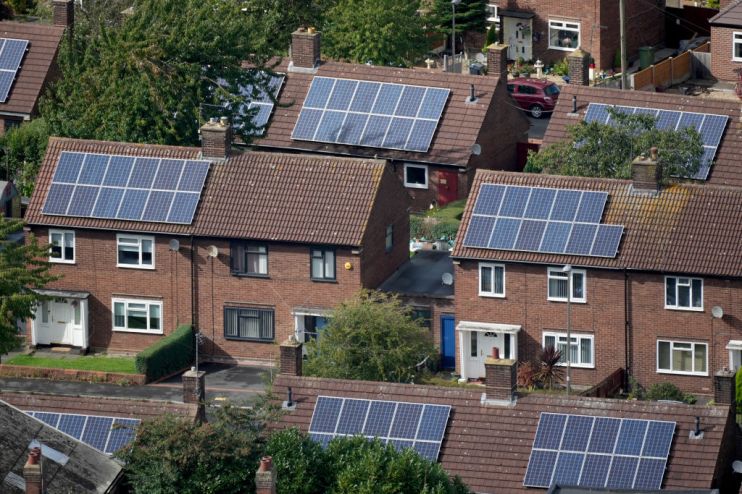Supply security: Government holds talks with Centrica over gas storage while EU delays oil ban

The government is holding talks with Centrica about re-opening a giant gas storage facility, in case European supplies from Russia are cut off.
Discussions between both parties form part of the government’s contingency plans ahead of this winter, with the war in Ukraine driving up wholesale prices and raising the risk of supply disruption.
Centrica’s facility in Yorkshire was mothballed in 2017, when the gas giant revealed it was no longer financially viable and Downing Street refused to subsidise it.
It now appears the government is open to funding the facility, which City A.M. understands would require up to £2bn to provide it as a short-term facility for gas before transitioning into hydrogen.
When operational, the site can store between 10 and 12 days’ worth of the UK’s gas needs.
According to the BBC, the talks are part of plans for a “reasonable worst case scenario” in which Russia shuts off all gas supplies to Europe, resulting in Norwegian gas supplies being redirected from the UK to Europe.
Plans also include extending the life of the few remaining coal fired power plants in the UK.
Last month, Business Secretary Kwasi Kwarteng wrote to the owners EDF, Drax and Uniper asking them consider continuing operations at their facilities.
The government has also contacted EDF to see what scope was available to extend the life of Hinkley Point B, a nuclear plant in Somerset.
The UK only receives around four per cent of its natural gas from Russia but is currently reliant on Norway for a third of supplies.
Downing Street is concerned that if Russia cuts off supplies to the European Union (EU) or the bloc boycotts supplies because of the Kremlin’s attack on Ukraine, Norwegian supplies might be diverted.
The EU relies on Russia for 40 per cent of its gas supplies, with the threat of further supply disruption intensifying today after Kremlin-backed Gazprom cut off supplies to GasTerra.
The Dutch energy firm will no longer receive gas from Gazprom after refusing to agree to demands for payment in roubles.
The company is 50 per cent owned by Dutch government entities and 25 per cent each by Shell and Exxon.
Gazrprom has already cut off supplies to three member states – Bulgaria, Poland and Finland – after the energy giants in those countries also refused to pay for gas in roubles.
EU fails to finalise Russian oil ban
Supply security is becoming an increasingly urgent matter for Western nations, with the EU failing to finalise the details of an oil ban ahead of this week’s summit in Brussels.
The leaders of the 27 European Union countries are set to agree in principle to an oil embargo, according to a draft of its summit conclusions seen by news agency Reuters.
However, they will leave the practical details until a later date – with Hungary continuing to withhold its support for an oil ban.
The draft text confirms the EU has caved in on demands to exclude piped supplies.
According to Reuters, the ban will focus on seaborne oil imports, with pipeline oil supplied to landlocked Hungary, Slovakia and Czechia to be sanctioned at some later point.
“There is no compromise, for this moment at all,” said Hungarian Prime Minister Viktor Orban.
European Commission President Ursula von der Leyen, who proposed the latest package of sanctions at the start of May, agreed: “We’re not there yet.”
Estonian Prime Minister Kaja Kallas said it was more realistic to expect an agreement on an oil embargo in a few weeks, at the EU’s next summit on June 23-24.
The lack of agreement is a blow to the EU, which has rolled out five packages of sanctions against Russia since the conflict began more than three months ago, but has also spent €29.8bn on Kremlin-backed oil supplies.
The trading bloc depends on Russia for around 26 per cent of its oil imports, and has already had to carve longer windows for the embargo to several EU member states to gain their approval.
There is broad agreement on the rest of the package, including cutting Russia’s biggest bank, Sberbank from the SWIFT messaging system, banning Russian broadcasters from the EU and freezing the assets of more people linked to the Kremlin.
The EU has also agreed a package of loans and grants totalling €9bn for Ukraine to keep its government functioning during the conflict.